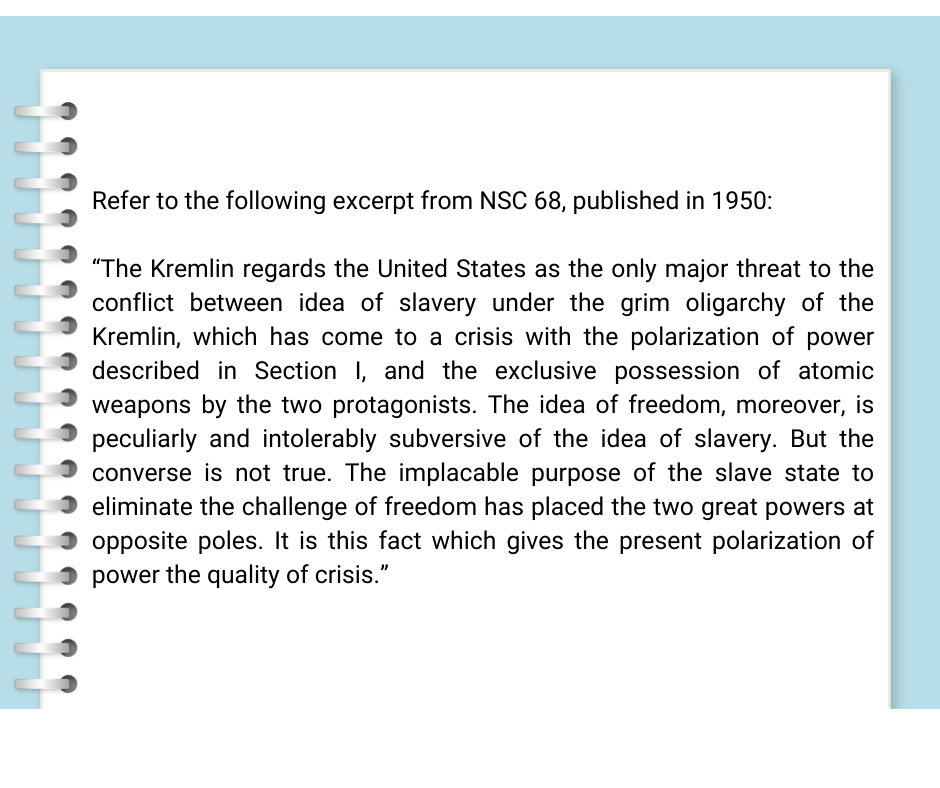
Explanation:
World War II decimated several previous imperial nations and they withdrew from their colonies. In order to obtain resources and military allies, the US and USSR both tried to gain sway in newly independent nations. Not all ex-colonies chose to join the non-aligned movement, but some did.
Explanation:
Radicals like Malcom X disagreed with Martin Luther King's call for nonviolent protest, insisting that black people have a right to self-defense.
Explanation:
The two nations frequently engaged in indirect conflict, as seen in the 1950s in Korea and the 1960s and 1970s in Vietnam. However, there were also moments of détente such as during the 1970s when the US and USSR cooperated on space exploration and nuclear arms constraints.
Explanation:
The early attempt to reduce communist power in Vietnam was supported by many Americans, or at least they did not oppose it. However, when the war started to cost more money and lives, the anti-war movement started to gain momentum.
Explanation:
A "imperial presidency" was established by President Richard Nixon through the withholding of funds authorized by Congress, the commissioning of military operations without Congressional authorization, the withholding of information, and the impediment to congressional interrogation of members of his cabinet. The Watergate affair prompted Congress to enact a number of measures that limited the president's military authority, re-established Congressional budgeting authority, improved access to public data, and restrained this expanded power.
Explanation:
The concept of containment, which served as the main American strategy during the Cold War, was outlined in NSC 68. In an effort to limit Soviet influence, the US provided its allies with military and economic assistance. Additionally, we pushed our friends to sign up for NATO, which employed the concept of collective security to deter Soviet assault.
Explanation:
Misandry is the hatred of men; feminism did not seek to punish men; it sought equality. They did make a case for the necessity of addressing sexual assault, gender inequalities at work, and improved access to abortion.